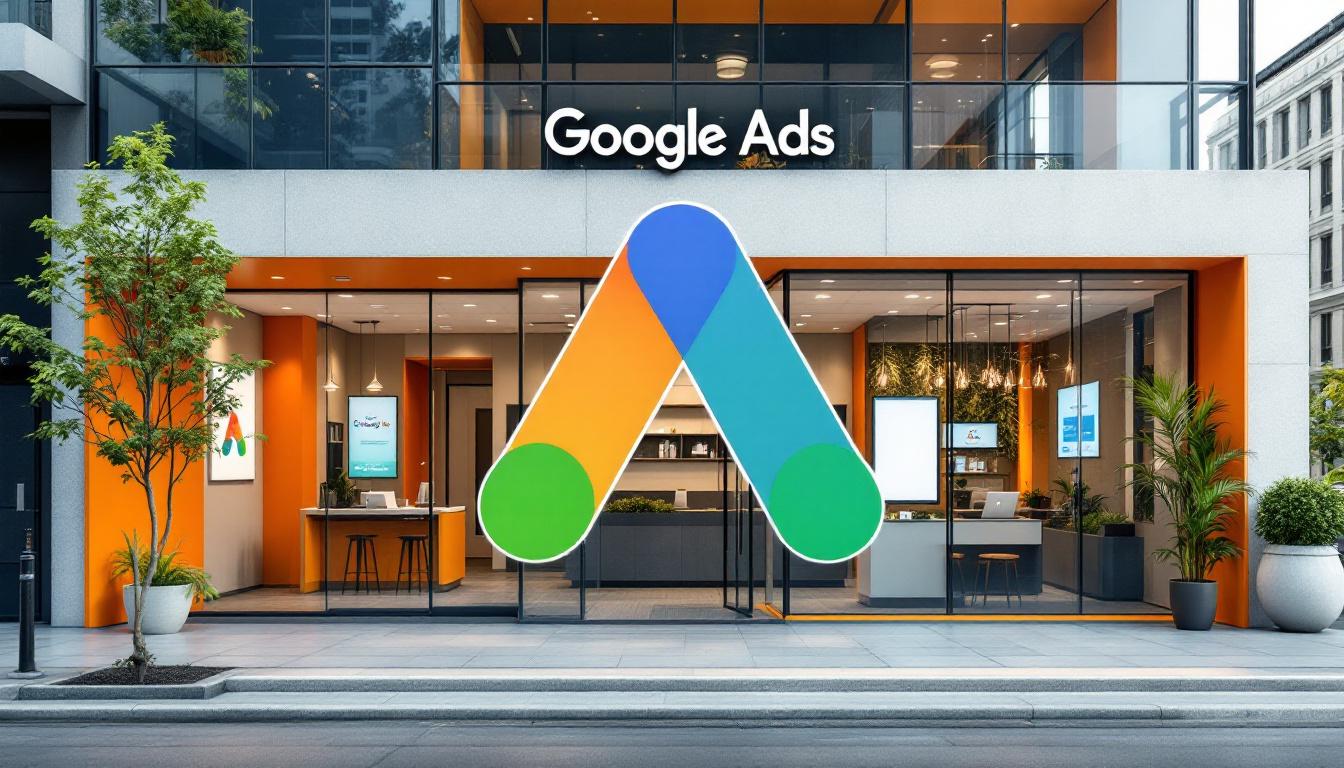The Role of Chatbots in Appointment Scheduling
Transforming Appointment Management with AI Technology


The Role of Chatbots in Appointment Scheduling
Introduction to Chatbots in Appointment Scheduling
Chatbots powered by artificial intelligence have become vital tools across various industries for automating appointment scheduling. Their ability to facilitate seamless, 24/7 interactions enables organizations to enhance efficiency, improve patient and customer engagement, and reduce operational costs. From healthcare to corporate environments, AI-driven appointment management systems are transforming traditional scheduling processes, integrating with existing platforms such as electronic health records (EHRs), calendar systems, and customer relationship management (CRM) tools. This article explores the role of chatbots in appointment scheduling, their technological capabilities, benefits, challenges, and future trends.
The Multifaceted Role of Chatbots in Appointment Scheduling
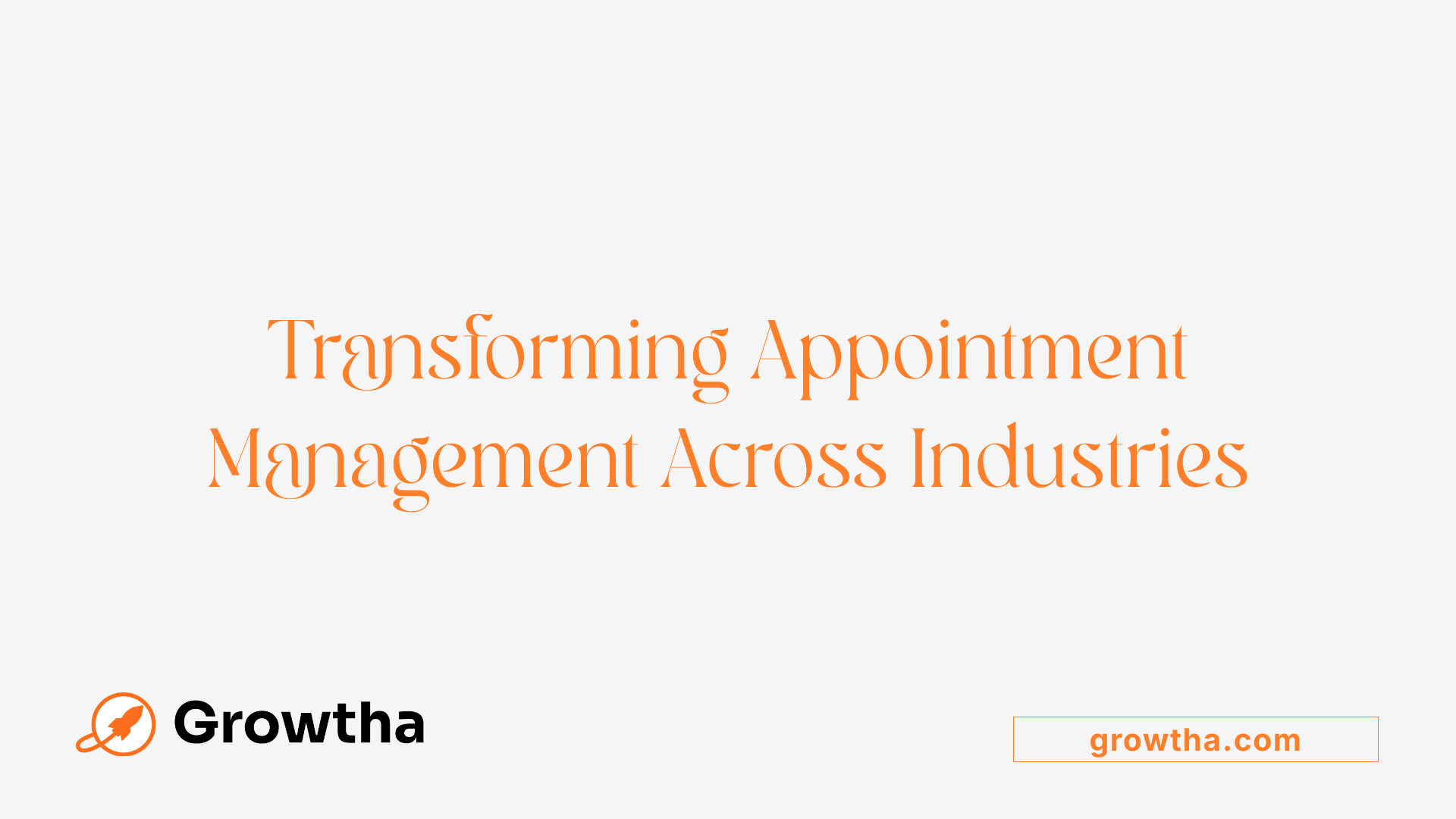
What is the role of chatbots in appointment scheduling across industries?
AI-powered chatbots are transforming how organizations manage appointments by offering round-the-clock access for booking, modifying, and confirming meetings or healthcare visits. Especially prominent in healthcare, these virtual assistants engage users through natural language conversations, making scheduling more intuitive and accessible.
They effortlessly integrate with online calendar systems and scheduling platforms like Google Calendar, Calendly, and healthcare-specific EHR systems via APIs. This connectivity allows for real-time availability updates and prevents issues like double bookings.
By automating reminders and follow-ups, chatbots enhance attendance rates and streamline workflows. They assess user preferences and provider schedules, optimizing appointment slots and reducing wait times. Additionally, using historical data and machine learning, these systems can predict no-shows and suggest rescheduling, further strengthening appointment adherence.
Across industries including healthcare, corporate, beauty, and legal services, chatbots serve as virtual scheduling assistants, supporting scalable, personalized appointment management. Their ability to improve accessibility, reduce administrative burdens, and create more efficient service experiences marks a significant upgrade in operational logistics, making care and service delivery faster and more user-friendly.
How do chatbots function and what technological features enable them to manage scheduling?
Chatbots operate as intelligent virtual assistants that communicate via natural language processing (NLP) technology. This enables them to understand user questions and intents accurately while engaging in seamless conversations.
Key technological features include:
- NLP and Sentiment Analysis: Understanding the nuances of user requests, intents, and emotions, resulting in more natural interactions.
- Calendar and System Integration: Connecting effortlessly with scheduling tools like Google Calendar, Microsoft Outlook, and healthcare management systems through APIs for real-time data access.
- Automation Capabilities: Automating tasks such as booking, rescheduling, and sending reminders ensures prompt and error-free appointment management.
- Data Synchronization and Security: Ensuring the latest information is always available and complying with healthcare regulations like HIPAA to protect patient data.
In healthcare settings, these features support complex scheduling needs, such as coordinating multiple providers, categorizing urgency, and integrating with electronic health records for comprehensive patient management. Overall, technological advances like NLP, API integrations, and predictive analytics empower chatbots to handle appointment workflows efficiently, reducing manual input errors and improving user experience.
What are the benefits of using chatbots for appointment booking and management?
Implementing chatbots in appointment management brings multiple advantages:
- 24/7 Availability: Users can book, modify, or cancel appointments anytime, increasing convenience and accessibility.
- Reduced Workload: Automating routine tasks alleviates administrative staff pressure, allowing focus on higher-value activities.
- Enhanced Efficiency: Handling multiple requests simultaneously, chatbots significantly cut down waiting times and improve scheduling accuracy.
- Decreased No-Shows: Automated reminders and rescheduling options help ensure patient adherence, reducing missed appointments by up to 30% in some cases.
- Better Customer Experience: Personalized, quick responses, and multilingual support improve satisfaction and engagement.
- Cost Savings: Lower operational costs due to less need for manual intervention, as seen with hospital systems saving millions annually.
- Integration and Scalability: Easily incorporated into existing platforms, they support growth and expansion without substantial new investments.
These benefits culminate in more efficient operations, higher patient or client satisfaction, and better resource utilization, making chatbots an invaluable component of modern service ecosystems.
Limitations and Challenges in Deployment
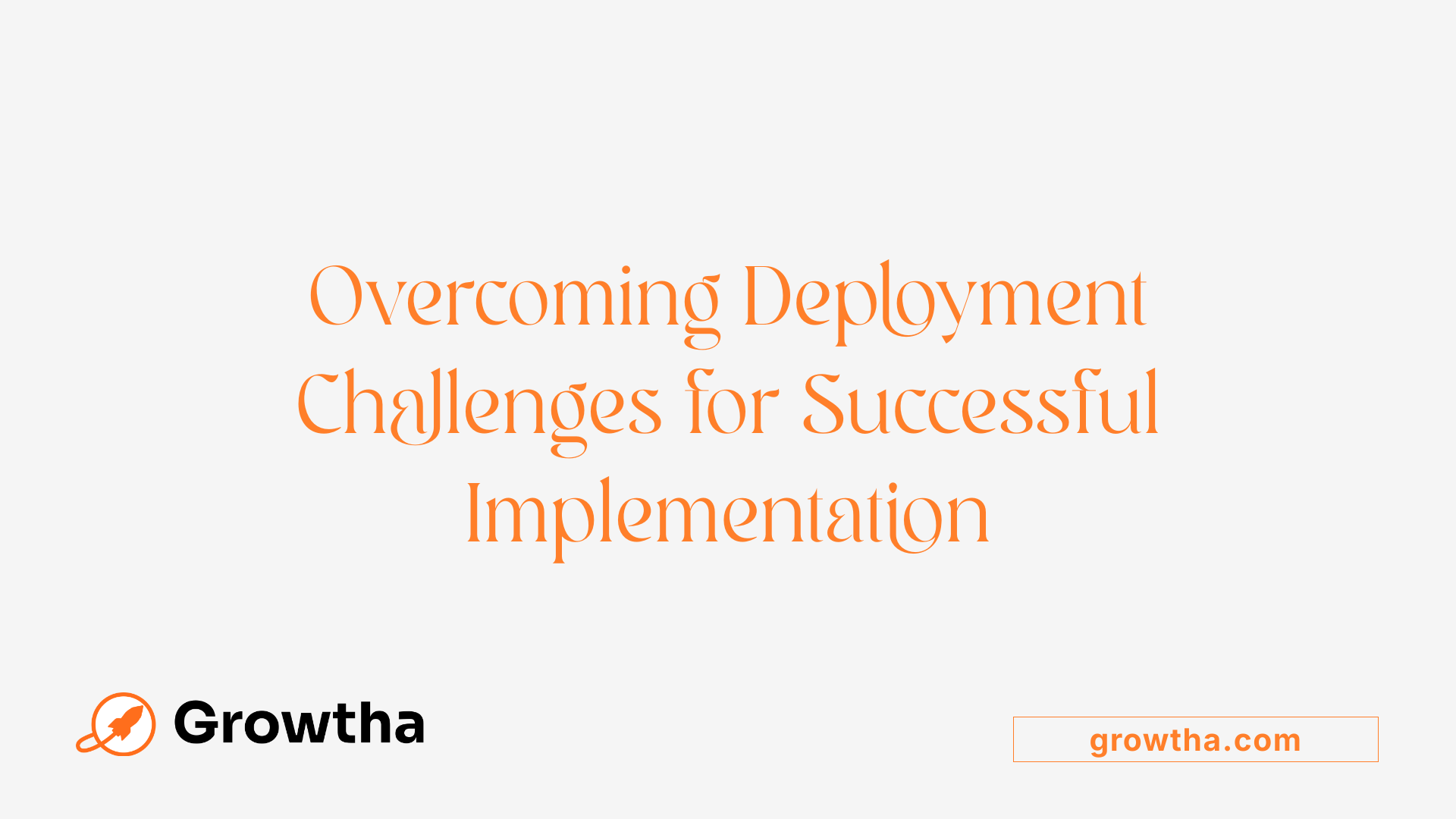
What are the limitations and challenges of implementing chatbot technology for scheduling purposes?
While AI-driven chatbots significantly enhance appointment scheduling efficiency, their deployment is not without hurdles. A prominent challenge lies in understanding complex or nuanced scheduling requests. For example, users may ask about multi-party appointments, rescheduling across multiple time zones, or specify preferences that are difficult for the chatbot to interpret accurately. This can lead to errors, miscommunications, and ultimately, patient dissatisfaction.
Another obstacle is real-time data synchronization. Many chatbots lack seamless integration with existing calendar systems, such as electronic health records or practice management software. This disconnection can result in outdated or conflicting appointment information, causing double bookings or missed slots. Ensuring instant and reliable synchronization remains technically demanding.
Data privacy and security present substantial concerns. Handling sensitive patient information during scheduling or rescheduling processes necessitates complying with strict regulations like HIPAA. Securing data transmission, storage, and access controls is critical to prevent breaches that could compromise patient confidentiality.
Moreover, relying heavily on automated chatbots without sufficient human oversight can be problematic. Errors in appointment booking may go unnoticed, and the system might fail to escalate issues requiring human intervention. This can diminish trust and compromise service quality.
Technically, chatbots face limitations in managing unexpected or complex scenarios, such as emergencies or cancellations that deviate from standard workflows. Their ability to adapt dynamically to unusual requests is still evolving, which can hinder their effectiveness in real-world healthcare settings.
How do these limitations affect user experience and operational efficiency?
These challenges directly influence the quality of user experience. Misunderstandings or errors in appointment scheduling can cause frustration and erode patient confidence in digital tools. If patients encounter delays, incorrect bookings, or data breaches, they may prefer traditional scheduling methods, thereby reducing the intended convenience.
On the operational front, inaccuracies and delays necessitate manual correction, which undermines the costs and time savings these systems aim to provide. Healthcare staff may need to spend additional hours resolving conflicts or verifying appointments, offsetting the efficiency gains.
Furthermore, persistent technical issues, such as synchronization failures or inability to handle complex requests, can lead to workflow disruptions. Staff may need to revert to manual scheduling or cancel appointments, increasing workload and operational costs. Overall, these limitations can hamper the scalability and reliability of chatbot deployment, impeding the potential benefits of automation.
More about deployment challenges
To address these issues, healthcare organizations must carefully evaluate system capabilities and limitations before deployment. Investing in robust integration platforms, conducting thorough staff training, and establishing protocols for human oversight can mitigate risks. Ensuring compliance with data security standards is paramount to protect patient information.
Embracing continuous improvement through performance analytics can help identify recurring problems and optimize chatbot responses. Combining AI tools with human support creates a hybrid approach that leverages automation’s efficiency while maintaining quality control.
In conclusion, recognizing and planning for these deployment challenges is essential to successfully integrating chatbots into healthcare workflows. When properly managed, these tools can significantly improve appointment scheduling processes—balancing technological innovation with operational reliability.
Future Trends Shaping Appointment Scheduling
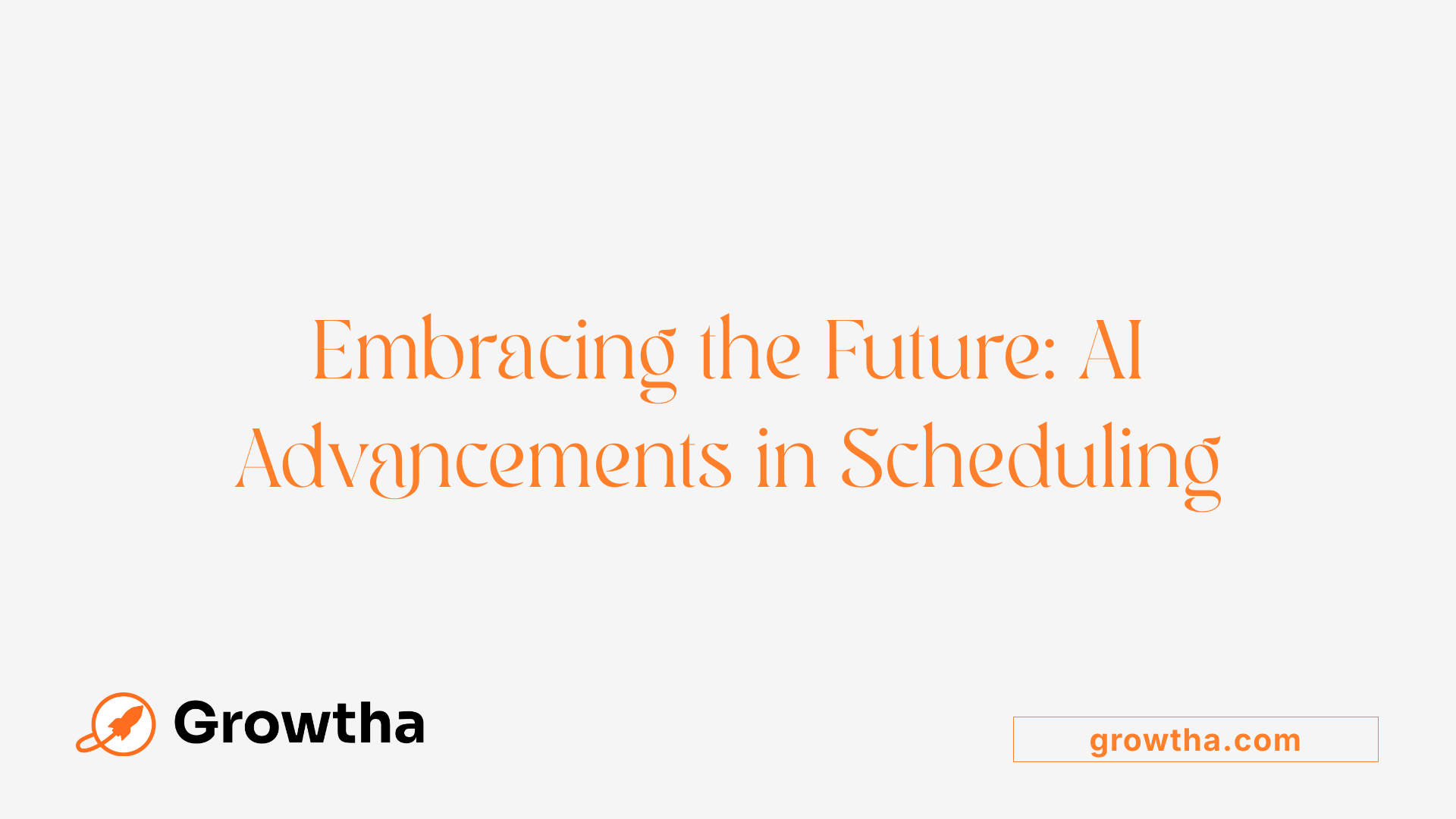
What are the future trends and developments in chatbot-assisted appointment scheduling?
The future of appointment scheduling through AI chatbots is set to become more personalized and intuitive. Advances in AI will allow chatbots to better understand individual user preferences, emotions, and behaviors, enabling tailored interactions that are more engaging and effective. For example, by analyzing past interactions and contextual cues, chatbots can suggest optimal meeting times, preferred channels, or even specific communication styles suited to each user.
In addition, multimodal AI technologies will revolutionize how users interact with scheduling systems. Voice commands, video interfaces, and visual cues will become commonplace, making the process more accessible, especially for users with disabilities or those on the go. These multimodal interfaces will support natural, hands-free scheduling experiences, allowing users to book appointments through spoken language or visual inputs seamlessly.
Autonomous AI agents will increasingly take over complex administrative workflows. These intelligent systems will be capable of detecting system failures, managing entire booking processes independently, and making decisions that optimize scheduling efficiency without human oversight. This automation will reduce bottlenecks, prevent double bookings, and ensure appointments are allocated in the most effective manner.
Large language models, such as GPT-4, will further enhance conversational abilities, allowing chatbots to understand context more deeply and generate more human-like, natural responses. This evolution will make virtual scheduling assistants feel more personable and trustworthy, improving user satisfaction.
Emerging technological innovations like digital twins, emotional intelligence, and Internet of Things (IoT) integration will complement AI-based scheduling solutions. Digital twins will enable real-time simulation and optimization of scheduling scenarios, while IoT devices can provide live data (e.g., room occupancy, device status) to inform decision-making. These advancements will result in more responsive, predictive, and seamless appointment management systems across industries, especially in healthcare.
How will these developments impact user experience and operational workflows?
The anticipated progress in AI-driven scheduling will greatly improve the user experience by delivering interactions that are more personalized, natural, and accessible. With better natural language understanding and multimodal capabilities, users will find scheduling simpler and more engaging, whether through voice, text, or visual inputs. This inclusive approach will cater to diverse user needs and preferences, encouraging more active participation in managing appointments.
Operationally, these innovations will lead to streamlined workflows and greater efficiency. Autonomous AI agents will handle routine booking, rescheduling, and cancellation tasks, freeing staff to focus on higher-value care and personalized interactions. Automated systems will work continuously, reducing delays, minimizing errors such as double bookings, and improving overall resource utilization.
Integration with IoT and digital twin technologies will allow for predictive scheduling. For instance, real-time data from connected devices can help anticipate demand, adjust appointments proactively, and allocate resources accordingly. This agility will support better management of healthcare facilities, ensuring patients are seen promptly and resources are optimally used.
Overall, these technological advances promise not only to enhance the convenience and satisfaction of users but also to create more efficient, responsive, and intelligent operational workflows that can adapt dynamically to changing environments and needs.
Impact on Healthcare Practices and Patient Engagement
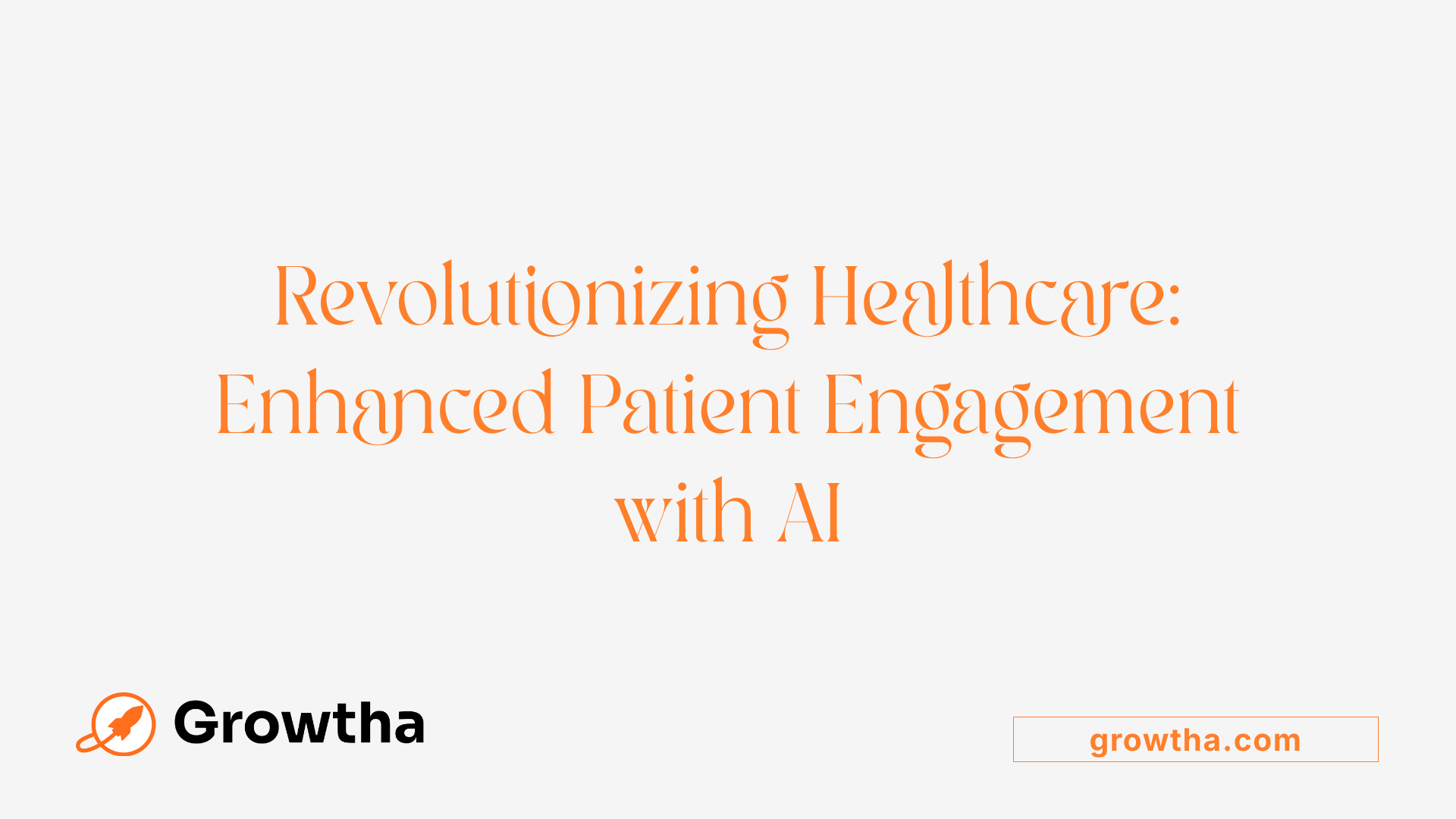
How do chatbots impact healthcare practices, patient engagement, and operational efficiency?
Chatbots are transforming healthcare by significantly improving the way practices operate and how patients interact with the system. They streamline administrative routines such as appointment booking, reminders, and triage, leading to faster, more efficient workflows. For instance, chatbots can autonomously handle scheduling requests 24/7, drastically reducing wait times and administrative workload for staff.
Furthermore, these AI tools enhance patient engagement by offering continuous, accessible support. Patients can ask health-related questions, receive mental health guidance, or get educational information at any time, improving overall patient satisfaction. Chatbots can also collect valuable health data, which supports personalized treatment plans and enables healthcare providers to make more informed decisions.
Cost savings are a direct outcome as chatbots decrease the need for manual labor and reduce no-show rates thanks to automated reminders and rescheduling. Hospitals like OSF HealthCare have reported saving millions annually through chatbot integration, mainly by redirecting routine inquiries to automated systems. The greater efficiency and improved communication channels help make healthcare services more accessible, especially for underserved or remote populations.
Despite their advantages, deploying chatbots involves challenges related to privacy, data security, and ensuring users trust AI-driven interactions. Nonetheless, ongoing advancements and regulatory measures are helping to mitigate these issues, making chatbots an integral part of future healthcare practices.
Evidence Supporting Chatbots' Effectiveness in Appointment Scheduling
What research and evidence support the effectiveness of chatbots in appointment scheduling?
Studies and real-world implementations have consistently shown that chatbots significantly improve appointment scheduling processes in healthcare. Research indicates that these AI-powered tools can handle routine booking tasks efficiently, offering patients around-the-clock access across multiple platforms, including websites, messaging apps, and social media.
Systematic reviews reveal that chatbot users report high satisfaction levels, often completing booking procedures swiftly and accurately. For example, Dr. Russell’s ophthalmology practice successfully scheduled 6 out of 9 potential patients in the first week after deploying an OpenAI-based chatbot, achieving about a 67% conversion rate. Similarly, institutions like Cleveland Clinic have reported shorter wait times and more efficient call handling, thanks to the integration of AI voice and chat systems.
Implementation case studies underscore the tangible benefits. For instance, OSF HealthCare saved approximately $2.4 million annually by diverting routine inquiries and appointment bookings to automated chatbots, freeing up staff to focus on complex patient care. These systems are integrated with electronic health records (EHRs), scheduling platforms, and customer relationship management (CRM) tools, ensuring real-time updates, preventing double bookings, and streamlining workflows.
Furthermore, research shows that automation reduces administrative workloads and operational costs by up to 70% in some healthcare settings. The combination of improved efficiency, better patient access, and high satisfaction levels strongly supports the expanding adoption of chatbot technology for appointment scheduling.
What KPIs are commonly used to measure chatbot success?
Healthcare organizations evaluate chatbot performance using various key metrics. These KPIs include:
- Appointment booking volume: Total number of appointments scheduled through the chatbot, indicating user engagement.
- No-show rates: Reduction in missed appointments, as reminders and follow-ups are automated, with typical decreases around 30-50%.
- Patient satisfaction scores: Feedback ratings collected post-interaction reflect user experience improvements.
- Call and manual follow-up reduction: Measures operational efficiency gains, with some practices experiencing reductions of up to 70%.
- Cost savings: Quantification of expenses saved through automation of administrative tasks such as appointment booking, confirmation, and reminders.
- Response accuracy and speed: Evaluation of how well the chatbot understands queries and responds promptly.
- System uptime and reliability: Ensures continuous availability for users.
- Rescheduling and cancellation rates: Effectiveness in managing changes without human intervention.
By analyzing these metrics, healthcare providers can optimize chatbot functionalities, validate return on investment, and improve overall patient care delivery.
| KPI | Description | Typical Impact |
|---|---|---|
| Appointment volume | Number of bookings processed | Increased access |
| No-show rate reduction | Percentage decrease in missed appointments | Improved resource utilization |
| Patient satisfaction | User ratings and feedback | Enhanced experience |
| Cost savings | Expense reduction through automation | Higher efficiency |
| Response accuracy | Precision in understanding questions | Better user engagement |
| System availability | Uptime percentage | Reliable service |
| Rescheduling success rate | Effective handling of booking changes | Flexible scheduling |
How do chatbots integrate with health records and scheduling systems?
Successful chatbot deployment hinges on seamless integration with existing healthcare IT infrastructure. Using APIs and secure data interfaces, chatbots connect to electronic health records (EHR), calendar systems, and practice management platforms.
This integration enables real-time access to provider schedules, patient data, and appointment availability. For example, chatbots can check doctor availability instantly, update records with booking details, and ensure that appointments align with the patient's medical history.
In practice, platforms like Calendly and Clara are designed to synchronize with popular EHR systems, allowing automatic recording of booking data and reducing manual input errors. This also facilitates features such as automated reminders, follow-ups, and rescheduling.
Moreover, integrating chatbot systems with billing and insurance platforms helps streamline administrative workflows, reducing overhead costs and administrative errors. For healthcare providers, this connectivity improves operational smoothness and enhances patient care delivery.
What improvements have been observed in appointment rates and patient satisfaction?
Real-world implementations report substantial increases in appointment bookings. For instance, Weill Cornell Medicine experienced a 47% rise in appointments after deploying AI-driven scheduling chatbots.
Patient satisfaction also improves notably, owing to the ease of use and 24/7 availability of these digital tools. Patients appreciate the convenience of booking, rescheduling, and receiving reminders through familiar messaging channels.
Automated notifications and follow-up messages decrease no-shows, with some facilities observing reductions of around 30%. This not only enhances revenue but also ensures better resource utilization.
Healthcare practices report that automating routine interactions allows staff to dedicate more time to personalized patient care, fostering higher satisfaction and improved outcomes.
How do chatbots reduce operational costs?
By automating routine administrative functions such as appointment scheduling, reminders, follow-ups, and cancellations, chatbots substantially lower operational costs. Early adopters like OSF HealthCare noted savings of approximately $2.4 million annually.
Automated systems decrease the need for staff to handle repetitive inquiries, allowing reallocation of human resources to complex and value-added tasks. Additionally, they minimize errors in scheduling and reduce the frequency of missed appointments.
The efficiency gained through automation ensures fewer manual interventions, faster response times, and improved patient flow, all contributing to cost efficiency.
In summary, the existing evidence demonstrates that chatbots significantly enhance appointment scheduling in healthcare by improving access, reducing no-shows, cutting costs, and integrating smoothly with existing systems. Continued technological advancements and strategic implementation will likely expand their benefits further.
Implementation and Best Practices
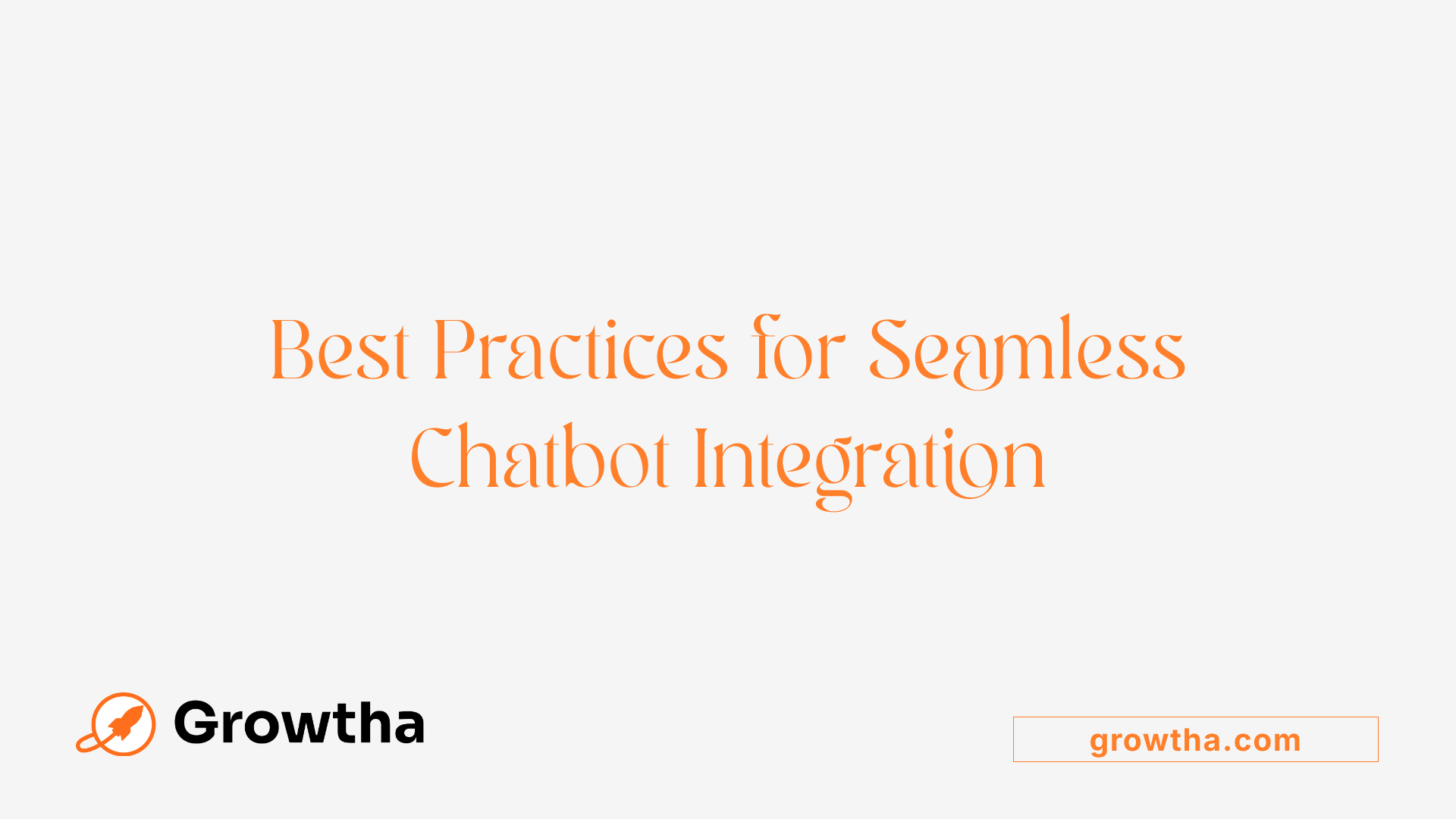
What are the best practices for implementing AI chatbots in appointment scheduling?
Implementing AI chatbots effectively requires a strategic approach that ensures they fulfill their intended purpose while maintaining a positive user experience. First, it's crucial to clearly define the chatbot’s purpose, scope, and target audience. Whether the goal is to handle new patient registrations, routine inquiries, or appointment rescheduling, setting specific objectives helps in designing a focused and effective system.
Seamless integration with existing healthcare platforms is vital. This includes connecting with electronic health records (EHRs), calendar systems, CRM platforms, and telehealth services. Utilizing APIs and open interfaces allows real-time synchronization of appointment data, availability, and patient information, reducing manual input errors and maximizing efficiency.
Designing user-friendly conversation flows enhances usability. The chatbot should understand natural language, handle multi-turn interactions, and personalize responses based on user data. Incorporating multi-platform support—such as websites, social media, and mobile apps—ensures users can access services conveniently at any time.
Data security and patient privacy must be prioritized. Implementing encryption, multi-factor authentication, and compliance with healthcare regulations like HIPAA protect sensitive health information. Regular audits and data access controls prevent breaches and build user trust.
Monitoring, evaluation, and continuous improvement are essential for long-term success. Collecting user feedback, analyzing interaction data, and tracking performance metrics—such as booking rates, error rates, and user satisfaction—help identify areas for enhancement. Routine updates and training of the chatbot ensure it remains relevant, accurate, and aligned with organizational changes.
In summary, best practices encompass clear goal setting, integrating with existing systems, user-centric design, robust security measures, and ongoing evaluation. These steps help maximize the benefits of AI chatbots, such as increased efficiency, improved patient satisfaction, and streamlined appointment management.
How does systematic integration improve scheduling accuracy?
Integrating AI chatbots with healthcare management systems ensures real-time access to availability, patient data, and provider calendars. This connection minimizes errors like double bookings and scheduling conflicts. Through APIs, chatbots can retrieve current appointment slots, update records instantly, and confirm bookings with patients, thus reducing manual input and oversight.
Why is ongoing monitoring vital for chatbot success?
Continuous monitoring captures performance data and user feedback, allowing organizations to refine interaction flows, correct misunderstandings, and update responses. This process enhances accuracy, user satisfaction, and system reliability, ensuring the chatbot adapts effectively to evolving needs.
What are critical elements in chatbot conversation design?
Effective conversation design includes clear language, context-awareness, and error handling. The chatbot should interpret phrasing variations, recognize user intent, and escalate complex issues to human agents when necessary. This ensures a smooth conversational experience and maintains trust.
How can security be maintained during implementation?
Security measures include encrypting all data transmissions, implementing strict access controls, employing multi-factor authentication, and adhering to healthcare data regulations. Regular security audits and staff training are necessary to keep data protected.
What role does user feedback play after deployment?
User feedback provides insights into usability issues, unmet needs, and potential enhancements. Analyzing feedback enables targeted improvements, leading to higher adoption rates and better organizational outcomes.
| Aspect | Focus Areas | Associated Benefits |
|---|---|---|
| Purpose & Goals | Defining scope, user needs | Alignment with organizational objectives, targeted functionality |
| System Integration | EHRs, calendars, CRMs | Accurate, real-time booking, reduced manual errors |
| Conversation Design | Natural language, personalization | Enhanced user experience, increased satisfaction |
| Security & Compliance | HIPAA, encryption, access controls | Data protection, regulatory adherence |
| Monitoring & Feedback | Data analytics, user surveys | Continuous improvement, operational efficiency |
This comprehensive approach to implementation ensures AI chatbots not only streamline appointment scheduling but also enhance overall patient engagement and trust.
Conclusion: The Future of AI-Driven Appointment Management
AI chatbots are redefining appointment scheduling by delivering faster, more personalized, and accessible services across industries. Their technological capabilities, from natural language processing to integration with healthcare systems, enable operational efficiencies, reduce costs, and enhance patient engagement. While challenges like data security and complex request handling remain, ongoing advancements in AI promise to address these limitations and unlock new possibilities, such as multimodal interfaces and autonomous workflow management. As adoption continues to grow—with projections indicating over 50% of medium and large organizations utilizing these tools by 2025—chatbots are positioned to become indispensable partners in efficient, patient-centered healthcare and service delivery, shaping the future landscape of appointment management.
References
- The Role of Chatbots and Virtual Assistants in Telemedicine
- How Appointment Booking Chatbots Streamline Scheduling?
- Revolutionize First Appointment Bookings With an AI Chatbot
- The Impact of AI Chatbots on Patient Triage and Appointment ...
- Enhancing Patient Experience: The Role of Chatbots in Streamlining ...
- Best AI Chatbot for Scheduling Appointments: Top Picks for 2025
- Conversational AI Chatbots for Booking and Scheduling ... - Tars
- How Chatbots and Voicebots are Revolutionizing Appointment ...



